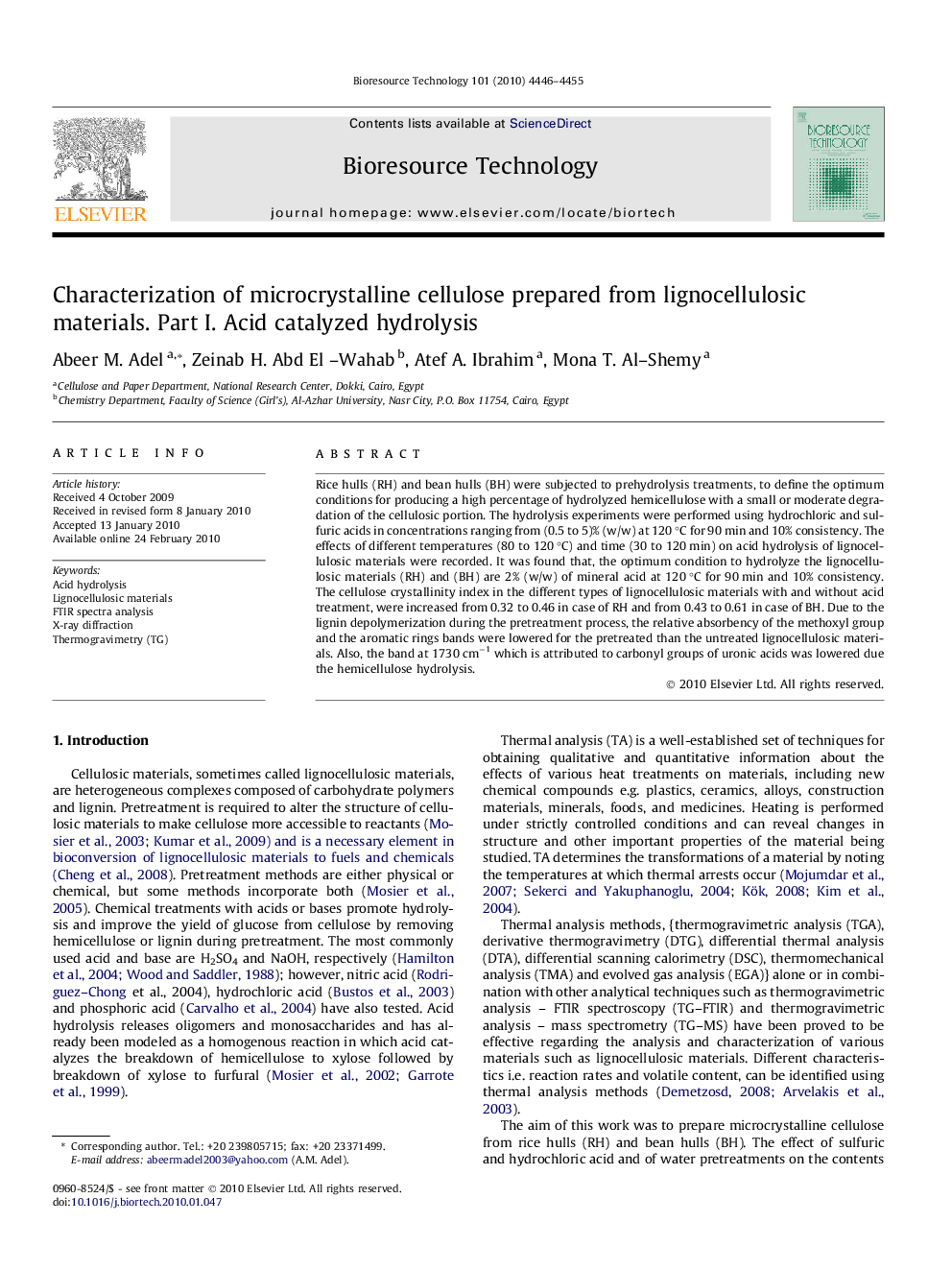| Article ID | Journal | Published Year | Pages | File Type |
|---|---|---|---|---|
| 10395622 | Bioresource Technology | 2010 | 10 Pages |
Abstract
Rice hulls (RH) and bean hulls (BH) were subjected to prehydrolysis treatments, to define the optimum conditions for producing a high percentage of hydrolyzed hemicellulose with a small or moderate degradation of the cellulosic portion. The hydrolysis experiments were performed using hydrochloric and sulfuric acids in concentrations ranging from (0.5 to 5)% (w/w) at 120 °C for 90 min and 10% consistency. The effects of different temperatures (80 to 120 °C) and time (30 to 120 min) on acid hydrolysis of lignocellulosic materials were recorded. It was found that, the optimum condition to hydrolyze the lignocellulosic materials (RH) and (BH) are 2% (w/w) of mineral acid at 120 °C for 90 min and 10% consistency. The cellulose crystallinity index in the different types of lignocellulosic materials with and without acid treatment, were increased from 0.32 to 0.46 in case of RH and from 0.43 to 0.61 in case of BH. Due to the lignin depolymerization during the pretreatment process, the relative absorbency of the methoxyl group and the aromatic rings bands were lowered for the pretreated than the untreated lignocellulosic materials. Also, the band at 1730 cmâ1 which is attributed to carbonyl groups of uronic acids was lowered due the hemicellulose hydrolysis.
Related Topics
Physical Sciences and Engineering
Chemical Engineering
Process Chemistry and Technology
Authors
Abeer M. Adel, Zeinab H. Abd El-Wahab, Atef A. Ibrahim, Mona T. Al-Shemy,
